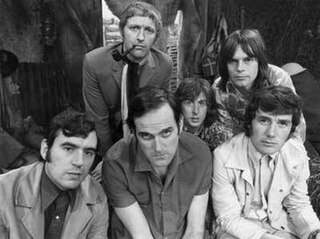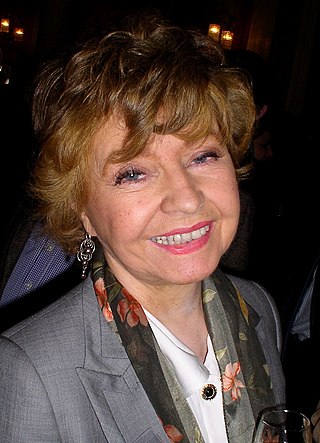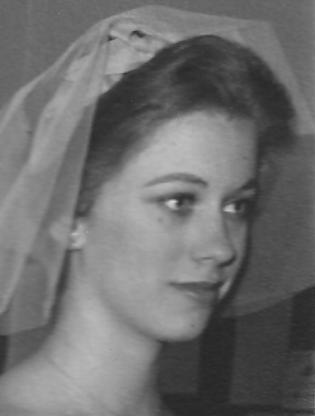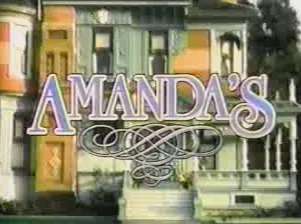Related Research Articles

Fawlty Towers is a British television sitcom written by John Cleese and Connie Booth, originally broadcast on BBC Two in 1975 and 1979. Two series of six episodes each were made. The show was ranked first on a list of the 100 Greatest British Television Programmes drawn up by the British Film Institute in 2000 and, in 2019, it was named the greatest ever British TV sitcom by a panel of comedy experts compiled by the Radio Times.

John Marwood Cleese is an English actor, comedian, screenwriter, producer, and presenter. Emerging from the Cambridge Footlights in the 1960s, he first achieved success at the Edinburgh Festival Fringe and as a scriptwriter and performer on The Frost Report. In the late 1960s, he cofounded Monty Python, the comedy troupe responsible for the sketch show Monty Python's Flying Circus. Along with his Python costars Terry Gilliam, Eric Idle, Terry Jones, Michael Palin, and Graham Chapman, Cleese starred in Monty Python films, which include Monty Python and the Holy Grail (1975), Life of Brian (1979), and The Meaning of Life (1983).

Monty Python were a British comedy troupe formed in 1969 consisting of Graham Chapman, John Cleese, Terry Gilliam, Eric Idle, Terry Jones, and Michael Palin. The group came to prominence for the sketch comedy series Monty Python's Flying Circus, which aired on the BBC from 1969 to 1974. Their work then developed into a larger collection that included live shows, films, albums, books, and musicals; their influence on comedy has been compared to the Beatles' influence on music. Their sketch show has been called "an important moment in the evolution of television comedy".
I'm Sorry, I'll Read That Again was a BBC radio comedy programme that was developed from the 1964 Cambridge University Footlights revue, Cambridge Circus., as a scripted sketch show. It had a devoted youth following, with the live tapings enjoying very lively audiences, particularly when familiar themes and characters were repeated; a tradition that continued into the spinoff show I'm Sorry I Haven't a Clue.

Prunella Margaret Rumney West Scales is a retired English actress. She portrayed Sybil Fawlty, the bossy wife of Basil Fawlty, in the BBC comedy Fawlty Towers, Queen Elizabeth II in A Question of Attribution by Alan Bennett and appeared in the documentary series Great Canal Journeys (2014–2021), travelling on narrowboats with her husband, fellow actor Timothy West.

Connie Booth is an American actress and writer. She has appeared in several British television programmes and films, including her role as Polly Sherman on BBC Two's Fawlty Towers, which she co-wrote with her then-husband John Cleese. In 1995, she quit acting and worked as a psychotherapist until her retirement.

Andreas Siegfried Sachs, known professionally as Andrew Sachs, was a German-born British actor. He made his name on British television and found his greatest fame for his portrayal of the comical Spanish waiter Manuel in Fawlty Towers.

"The Germans" is the sixth episode of the BBC sitcom Fawlty Towers. In the episode, while suffering the effects of a concussion, Basil Fawlty waits on a party of hotel guests from West Germany. Despite warning his staff "They're Germans! Don't mention the war", he keeps obliviously ignoring his own advice. His barrage of anti-German sentiment culminates in a goose-stepping impersonation of Adolf Hitler. The Germans are first deeply hurt, but are ultimately left wondering aloud how such idiots as Basil Fawlty and Major Gowen could ever have beaten their ancestors in two World Wars.

Payne is a 1999 American sitcom adapted from the 1970s British television comedy Fawlty Towers. This adaptation, which was a mid-season replacement on CBS, originally aired from March 15 to May 4, 1999. It costars John Larroquette, who was also an executive producer for the series, and JoBeth Williams. Featured too as regular supporting characters are Julie Benz and Rick Batalla. Despite receiving the blessing of John Cleese, who reportedly agreed to be an "irregular cast member" and perform in a recurring role as a rival hotelier if Payne were renewed, the series was cancelled following the broadcast of its eighth episode. A total of nine episodes were filmed, but one was not aired as part of the series' original presentation on CBS.

Basil Fawlty is the main character of the 1970s British sitcom Fawlty Towers, played by John Cleese. The proprietor of the hotel Fawlty Towers, he is a cynical and misanthropic snob, desperate to attract hotel guests from the British upper class. His inept attempts to run an efficient hotel, however, usually end in farce. Possessing a dry, sarcastic wit, Basil has become an iconic British comedy character who remains widely known to the public despite only 12 half-hour episodes ever having been made.

Manuel is a fictional character from the BBC sitcom Fawlty Towers, played by Andrew Sachs. He reappeared for a small sketch with John Cleese in We Are Most Amused in November 2008.

Stanley Boardman is an English comedian.

Donald William Sinclair was the co-proprietor of the Gleneagles Hotel in Torquay, Devon, England. He helped manage the hotel after an extensive career as an officer in the Merchant Navy and the Royal Navy. During the Second World War, Sinclair twice survived the sinking of the ships on which he was serving.

"Waldorf Salad" is the third episode of the second series of the British television sitcom Fawlty Towers. Written by John Cleese and Connie Booth and directed by Bob Spiers, it was first broadcast on BBC2 on 5 March 1979.
"Two World Wars and One World Cup" is a football song sung by supporters of the England national football team to the tune of "Camptown Races" as part of the England–Germany football rivalry. The chant refers to the United Kingdom's victories in the First and Second World Wars, and England's 4–2 victory against West Germany after extra time in the final of the 1966 FIFA World Cup. The chant has also spawned similar chants such as "Stand up if you won the war" to the tune of "Go West".

Amanda's is an American sitcom television series based on the 1970s British sitcom Fawlty Towers that aired on ABC from February 10 to May 26, 1983. The series starred Bea Arthur as Amanda Cartwright, who owns a seaside hotel called "Amanda's by the Sea" and was Arthur's first return to series television since her sitcom Maude ended in 1978.
Stephen Hall is an Australian actor, writer and producer.
Polly Sherman is a fictional character in the BBC sitcom Fawlty Towers. Played by Connie Booth, she is Fawlty Towers' long-suffering waitress and hotel maid.

The Gleneagles Hotel was a hotel in Torquay, Devon, England. The 41-bed establishment, which opened in the 1960s, was the inspiration for Fawlty Towers, a British situation comedy first broadcast in the mid-1970s. John Cleese, and his then wife Connie Booth, were inspired to write the series after they had stayed at the hotel and witnessed the eccentric behaviour of its co-owner, Donald Sinclair, who ran the hotel with his wife, Beatrice, until they sold it in 1973. Later the hotel was managed by Best Western. In February 2015 the hotel closed. It has since been demolished and replaced by retirement apartments.
"Stan's World Cup Song", also known as "Aye Aye Ippy The Germans Bombed Our Chippy", is a song by English comedian Stan Boardman. It is set to the tune of "She'll Be Coming 'Round the Mountain" and the Dambusters March. It was released to coincide with the 2006 FIFA World Cup.
References
- 1 2 Sherwin, Adam. "Don't mention the War, says Cleese in World Cup peace bid". The Times (archived at Wayback Machine). Archived from the original on 9 August 2011. Retrieved 30 May 2014.
- ↑ "The First Eleven's 'Don't Mention the World Cup' song". Funk.co.uk. 9 April 2006. Archived from the original on 18 December 2014. Retrieved 18 April 2018.
- ↑ "Don't mention the cup". Chortle. 2 May 2006. Retrieved 29 May 2014.
- 1 2 3 "Soccer fans learn World Cup etiquette according to Cleese". ABC. 19 May 2006. Retrieved 29 May 2014.
- ↑ All Things Considered. "Hooligans No More: Cleese's World Cup Decorum". NPR. Retrieved 29 May 2014.
- ↑ Smith, Laura (6 June 2006). "Can Germany escape its war past?". BBC News. Retrieved 29 May 2014.
- ↑ Kevin Dixon (8 January 2013). "The Fawlty Towers Legacy". Torquay Herald Express. Archived from the original on 29 May 2014. Retrieved 29 May 2014.
- ↑ "NewsBriefs: CHIPS ARE DOWN FOR STAN'S SONG; Comic's delight as hero Cleese uses famous line. - Free Online Library". Liverpool Echo (archived at The Free Library). 6 May 2006. Retrieved 29 May 2014.
- ↑ "Sing For England". England Football Online. Retrieved 29 May 2014.
- ↑ "3AM: MUSIC SCORES". 3:AM Magazine (archived at The Free Library). 6 June 2006. Retrieved 29 May 2014.
- ↑ "Small Pictures Press". Small Pictures Ltd. 13 June 2006. Archived from the original on 13 July 2006. Retrieved 18 April 2018.
- ↑ "itv_news_13.6.06.mov". Small Pictures Ltd. 13 June 2006. Archived from the original on 13 July 2006. Retrieved 18 April 2018.